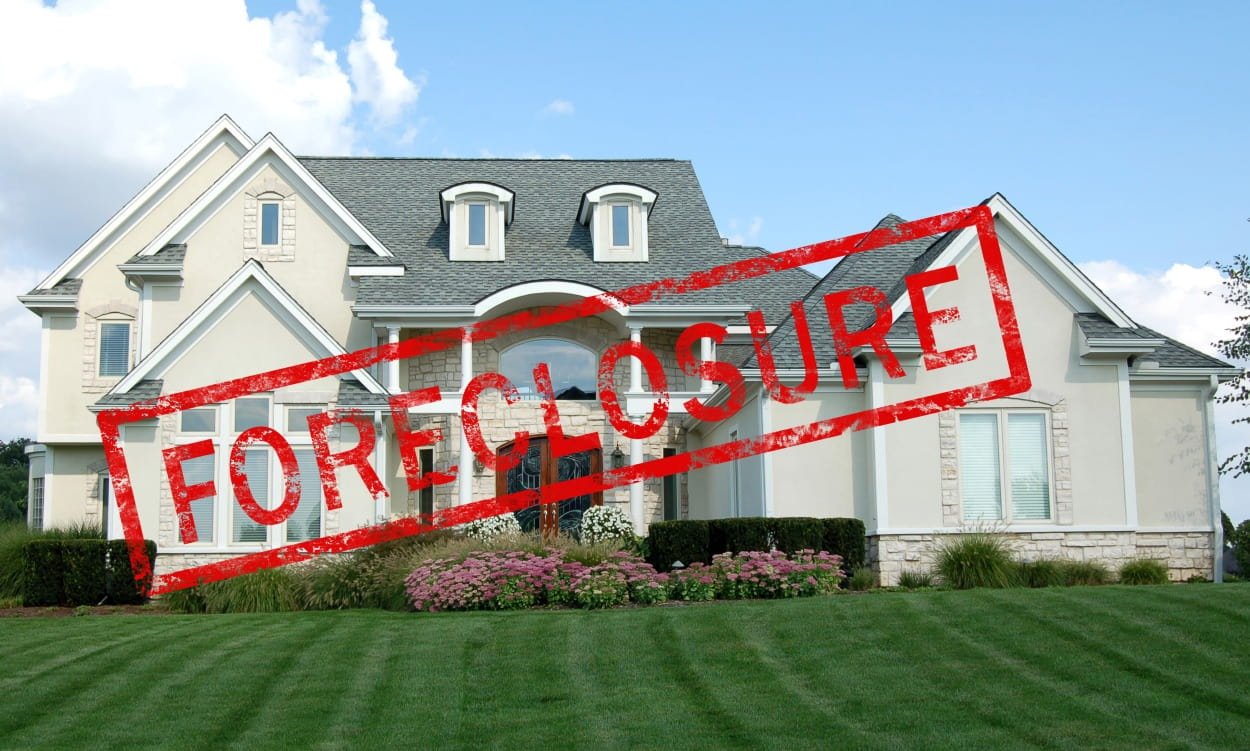Are you wondering how to stop foreclosure in Florida?
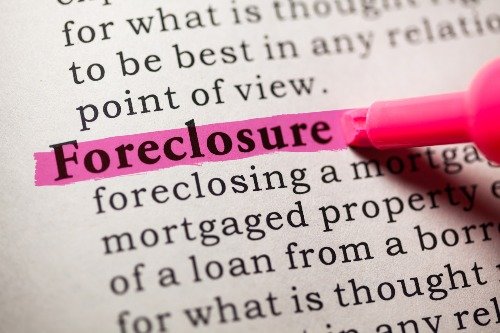
Everyday people end up in foreclosure, whether due to loss of a job, family assistance, medical needs, unanticipated expenses, or struggling to keep up with high mortgage payments.
The threat of foreclosure can be overwhelming. Nobody wants to be forced out of their home and it is devastating to lose a house to the bank.
You can prevent foreclosure with a proactive approach. Don’t wait until it is too late to stop foreclosure in Florida. The further you fall behind on a mortgage the harder it is to fight foreclosure. Acting sooner rather than later will allow you to save your house and protect your credit.
In this How To Stop Foreclosure in Florida [Definitive Guide], the House Heroes Team walks through how you can avoid foreclosure of your home.
We Buy Houses Fast – Fair Cash Offers.
Call Us (954) 676-1846 Send Text or Fill Out This Form For Your FAIR Offer.
Communicate Your Lender
Foreclosure is the legal process where a mortgage company repossesses your home, sells the property at auction, and evicts any residents. Banks institute foreclosure when the homeowner has defaulted on mortgage payments or violated the terms of their mortgage loan.

Foreclose is time-consuming and expensive. If you’re asking “how can I stop foreclosure in Florida” – banks are asking the same thing!
Banks prefer a solution to delinquent mortgage payments rather than dealing with on-going court hearings. Banks profit when you pay your mortgage. They may even lose money by going through the foreclosure process.
Taking your home is a “last resort”.
Banks have quite a few options if challenging financial times cause you to fall behind.
These options are called a “Mortgage Workout”.
What Is A “Mortgage Workout”?
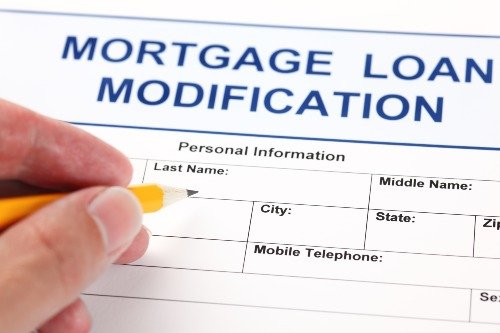
A “mortgage workout” is a plan between you and the lender to restructure a mortgage with the prospect of foreclosure looming.
During a mortgage workout, a homeowner meets with the lender to discuss how to modify the terms of the mortgage to make it possible to meet the monthly payments. Both the lender and owner must agree to the terms modifying the mortgage.
In deciding whether to approve a proposed workout, banks consider the reason that led to the owner to fall behind on in the first place:
- Total amount still owed on the mortgage
- The amount of equity currently in the property
- Current or future income potential of the homeowner
- Whether the loan modification, or foreclosure, is better for the bank.
Let’s go over some typical ways a “mortgage workout” is accomplished.
Repayment Plan.
Repayment plans allow you to catch-up on your mortgage once you’ve resolved the financial problem that led to delinquency. The bank spreads the late amounts over time – typically 3 to 6 months.
Here’s how a repayment plan works:
- The lender agrees to spread your overdue amount over a certain number of months called the “repayment period”.
- Mortgage payments during the repayment period include the overdue amount on top of the regular mortgage payment.
- At the end of the repayment period, your mortgage is current and you resume paying the normal monthly payment.
Forebearance Plan.
A “forebearance plan” (sometimes called special forebearance) is an agreement with a bank to limit mortgage payments temporarily to prevent an oncoming foreclosure.
Here’s how Investopedia explained it:
With the forebearance agreement, the lender agrees to reduce or even suspend mortgage payments for a certain period of time and agrees not to initiate a foreclosure during the forbearance period. The borrower must resume the full payment at the end of the period, plus pay an additional amount to get current on the missed payments, including principal, interest, taxes, and insurance.
A forebearance plan is an excellent solution if you can tell the bank in advance that you will be unable to make payments for a period of time. Unlike a “loan modification”, terms of the loan like interest rate, size of monthly payments, length of the mortgage do not change.
Loan Modification.
A loan modification is an agreement between a homeowner and a bank to modify the terms of an existing loan. Loan modifications involve changing the interest rate, extending the months left on the loan, or the type of loan.
The purpose of a loan modification is to reduce your monthly payments to an amount you can afford. If you can make the monthly payment, you avoid the foreclosure. The downside with a loan modification is that it could be marked on your credit and you will have to pay off the mortgage over a longer period.
Refinancing.
Refinancing a loan – replacing one loan with another – may stop a foreclosure by creating a smaller monthly payment you can keep up with.
You can re-finance with either a lower interest rate or longer term mortgage, in exchange for a smaller monthly payment. In order to be eligible, owners need strong credit and sufficient income to afford the new payment.
How Long Does Foreclosure Take in Florida?
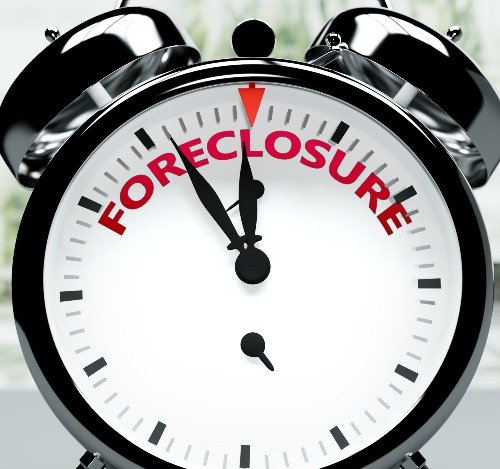
Are you asking when is it too late to stop foreclosure in Florida?
Understanding Florida’s foreclosure timeline helps make the best decisions.
Foreclosure takes approximately six-months from the time you miss a monthly mortgage payment. How many missed payments before foreclosure in Florida? It only takes one.
The amount of time for a foreclosure litigation varies depending on the legal issues and whether you contest foreclosure.
Here are the normal steps in the process:
- Notice of Default. The bank issues a notice of default upon missing your payments. This is approximately 2-weeks after a missed payments.
- Filing of Lis Pendens. Lis Pendens means filing a Summons and Complaint with the courts declaring the lender has sued you.
- Summons and Service of Process. The bank has 20-days following filing the Lis Pendens to service you legal notice.
- The Answer. Upon receiving notice of the foreclosure, you have 20-days to file an “Answer” in response to the Complaint. This is a good time to assert defenses for fighting foreclosure in Florida.
- Preliminary Hearing. This is the first “legal hearing”. Courts may request a period of time before pressing the litigation forward if you had a good reason to fall behind on payments.
- Summary Judgment Hearing. The lender may file a “summary judgment” hearing against you within 45-days. “Summary judgment” is a motion for the court to rule in favor of the bank based on undisputed facts.
- Foreclosure Sale Date. If the court found in favor of the lender on the summary judgment motion, a foreclosure auction is scheduled in 30-45 days.
Sell Your House Before Foreclosure

Selling your house is one way you can stop foreclosure in Florida. You get cash in your pocket, protect your credit, and can even stay in the property after closing.
Home sales aren’t always easy. “Time is of the essence” when selling a house before a foreclosure auction. The House Heroes Team buys property in Florida quickly. Visit our “How it Works” ⚙️page to learn about our three-step home buying process.
Typically, you can sell a house in Florida until the property is sold at the auction. During this time, the house is said to be in “pre-foreclosure” with time to sell or get even on your payments.
There are three options to sell a house in foreclosure in Florida:
Sell And Pay-Off Mortgage. The most common way to sell a house with a mortgage in Florida is to pay off the mortgage with sale proceeds. At closing, the bank receives the amount due on the mortgage and you keep the rest.
Sell “Subject-To” Mortgage. Selling “subject-to” the mortgage means you sell the house to a new owner, however the mortgage is not paid off. After closing, the new owner makes monthly mortgage payments on your behalf. This makes a sale possible and puts more cash in your pocket when a property has limited equity and buyers aren’t able to make an offer to cover the mortgage.
Here’s what Than Merril had to say about subject-to house sales:
When you purchase a property subject to, you are essentially buying the home subject to the existing mortgage. The original underwriting is kept as is, including the name in which the loan was purchased. That means the seller maintains the responsibility of paying off the loan, but the buyer has agreed to make mortgage payments on behalf of the original seller.
Short Sale. A short sale occurs when you sell the house for less than the amount owed to the bank. The bank accepts an offer less than the amount owed rather than going through a costly and time-consuming foreclosure. Short sales benefit the seller because there is no damage to credit score and the seller can vacate the home at their own pace.
Short sales take on average of four-months (30-days to be on the market for an acceptable offer, 60-days for approval by the bank, and 30-days for closing).
When you request the bank to approve a short sale, the “short sale” packet should include tax returns, W2 and 1099s statements, bank statements, payroll stubs, financial statements, and a letter of hardship. Banks may decline the short sale if the price is too low, the short sale packet is incomplete, or the seller does not qualify for a short sale.
The “For Sale By Owner” Approach To Selling.

Considering selling directly to buyer?
This is the “for sale by owner” approach. Owners choose to sell “by owner” to avoid the traditional process of listing the house on the MLS with a realtor.
The benefits of a FSBO sale are saving realtor commission, controlling the sale process, and a faster sale. The downsides are less public exposure and not as many buyers see the inside. Check out our “Sell a House By Owner Florida [FSBO Guide]” to learn more about selling on your own ➡️.
Deed-in-Lieu of Foreclosure
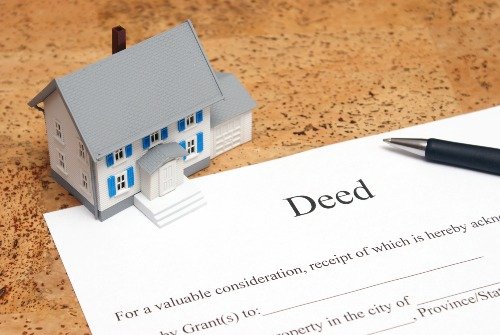
A “deed in lieu of foreclosure” transfers the house to the lender to satisfy the amount remaining due on the mortgage.
The advantage to you is that you are released from the obligation to make mortgage payments and avoid the foreclosure process. The bank saves the time and expenses of foreclosure.
According to NOLO:
Another way to avoid a foreclosure is by completing a deed in lieu of foreclosure. A deed in lieu of foreclosure is a transaction in which the homeowner voluntarily transfers title to the property to the bank in exchange for a release from the mortgage obligation. Generally, the bank will only approve a deed in lieu of foreclosure if there aren’t any other liens on the property.
Similar to short sales, you submit a packet of your financial information before the bank will approve your request for a deed-in-lieu of foreclosure. The bank may request you first attempt to sell it on your own.
Once the bank approves the sale, you sign a deed transferring ownership to the bank and an estoppel affidavit noting there are no third-party agreements and you are acting willingly of your own accord.
Filing For Bankruptcy
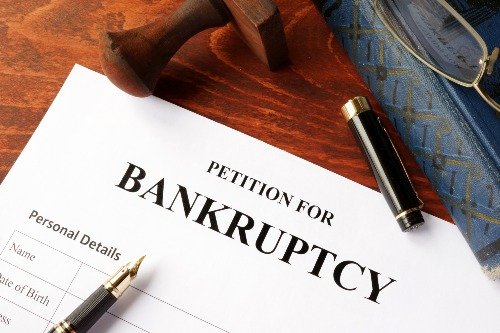
Does bankruptcy stop foreclosure in Florida?
Yes – bankruptcy delays the foreclosure of your home. However, it may not be the best option depending on your circumstances.
When bankruptcy begins, the court issues a temporary “automatic stay”. The automatic stay prevents creditors (in this case your lender) from collecting debts or enforcing liens (in this case your mortgage) during the bankruptcy case. The automatic stay may not be available if you have a bankruptcy history. Be aware there are differences between Chapter 7 and Chapter 13 bankruptcy.
According to Credit Karma:
Regardless of your ability to obtain a discharge through Chapter 13 bankruptcy, filing presses the pause button on the foreclosure process via the “automatic stay” provision. This protection generally allows the debtor a break from persistent communication and collection efforts from most creditors, including mortgage lenders. The foreclosure process won’t stop completely, but the automatic stay will create a little breathing room.
There are downsides to entering bankruptcy. Your credit score will be harmed – getting future mortgages will be difficult. If you own assets besides your mortgage (cash, bank accounts, other real estate, stocks/bonds) you would be at risk of losing those.
Disputing The Foreclosure

Foreclosures are sometimes filed on shaky legal grounds.
Because Florida is a “judicial” foreclosure state, every case must be heard by the court with judge approval before a foreclosure auction.
You can fight foreclosure in Florida – or at a minimum delay it – by asserting legal defenses. In many cases, “defenses” are asserted in the written “Answer” to the bank’s “Complaint” filed at the start of the litigation. The court decides whether the defenses hold up during the case.
Common defenses to fight a home foreclosure in Florida include:
Lack of Standing. Did the bank filing the foreclosure have the legal right to bring case? In other words, is the bank that filed the foreclosure the one that was harmed by failure to make the payments? If not, the standing defense could get the case dismissed.
Inadequate Notice. Mortgages usually require the bank to notify you of default prior to filing for foreclosure. Once the case is filed, banks must give you notice that the case was filed. Were you given sufficient notice?
Unclean Hands. To successfully assert the “unclean hands” defense, you typically need to prove the bank did something to cause you to end up in foreclosure in the first place (i.e. – it wasn’t all your fault). “Unclean conduct” can include fraudulent or illegal activity, acting in bad faith, or unconscionable behavior.
Improper Accounting of Mortgage Payments. Federal and state authorities have specific rules and regulations to properly apply payments and charges to mortgages. If a bank failed to follow accounting laws, you may be able to get the case dismissed.
Failure to Comply with HUD Requirements. Lenders must tell homeowners about loan counseling options available from the U.S. Department of Housing and Urban Development pursuant to the National Housing Act.
Contact an attorney to discuss all your legal options for fighting foreclosure in Florida.
Renting The Property
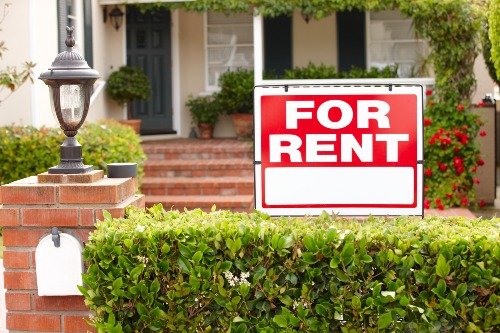
Is your house in a strong rental market?
You might be able avoid foreclosure by becoming a landlord.
If the rental profits are high enough, you can use cash to afford the monthly payment. Make sure to consider the costs associated with renting the property (taxes, insurance, utilities, property management, maintenance, risk of vacancy.) You may not net as much as you might think after accounting for expenses.
The downside to renting is that you will have to move out and may not be interested in dealing with the headaches of difficult tenants.
Florida Mortgage Assistance Options

Help may be available from the government if you are struggling to keep up with your mortgage. Find out what Florida mortgage assistance programs you are eligible for.
Government programs can reduce monthly payments or help you “catch up” so you are able to prevent the loss of your house due to foreclosure.
Making Home Affordable Program. The Making Home Affordable (MHA) program was introduced after the subprime mortgage crisis in 2009. The purpose of the program is to assist homeowners in reducing their mortgage payments to more affordable rates.
Florida’s “Hardest Hit Program”. The Hardest Hit Program – currently suspended – was designed to help owners hit the hardest by the housing bubble with federal funding. Financial assistance was provided for mortgage loan reinstatement, down payment assistance, and help during unemployment.
Foreclosure Counseling Programs. The Department of Housing and Urban Development (HUD) maintains a list of approved foreclosure counselors. Counseling programs can point you in the direction of programs and options that address your specific needs.
CHAMP Mediation Program. In Miami-Dade County, the “CHAMP” program mandates that homesteaded property must go through a mediation program in collaboration with the Collins Center For Public Policy prior to the completion of foreclosure.
Visit HUD.gov for a complete list of foreclosure assistance programs.
We Buy Houses – Fast and Fair Cash Offers.
Call Us (954) 676-1846 Send Text or Fill Out This Form For Your FAIR Offer.


Get A Fair Cash Offer. Call Us (954) 676-1846 or visit our Get A Fair Cash Offer page to find out how much we can pay you!

Our Team. Learn about our values and history. Meet the House Heroes Team – Lucas, Nick, Earl, Danielle, and Meghan!

How It Works. We buy houses in three-steps. Fast, cash, as-is, no realtor fees, fair prices. Learn how we do it!

Testimonials and Reviews. Honesty, integrity, and trust. Check out our video testimonials and social media reviews.

Case Studies. We buy houses in any condition. Watch the inside videos of our purchases – not for the faint of heart!

Frequently Asked Questions. Got some questions about House Heroes? Get all the answers over on our FAQ page.
